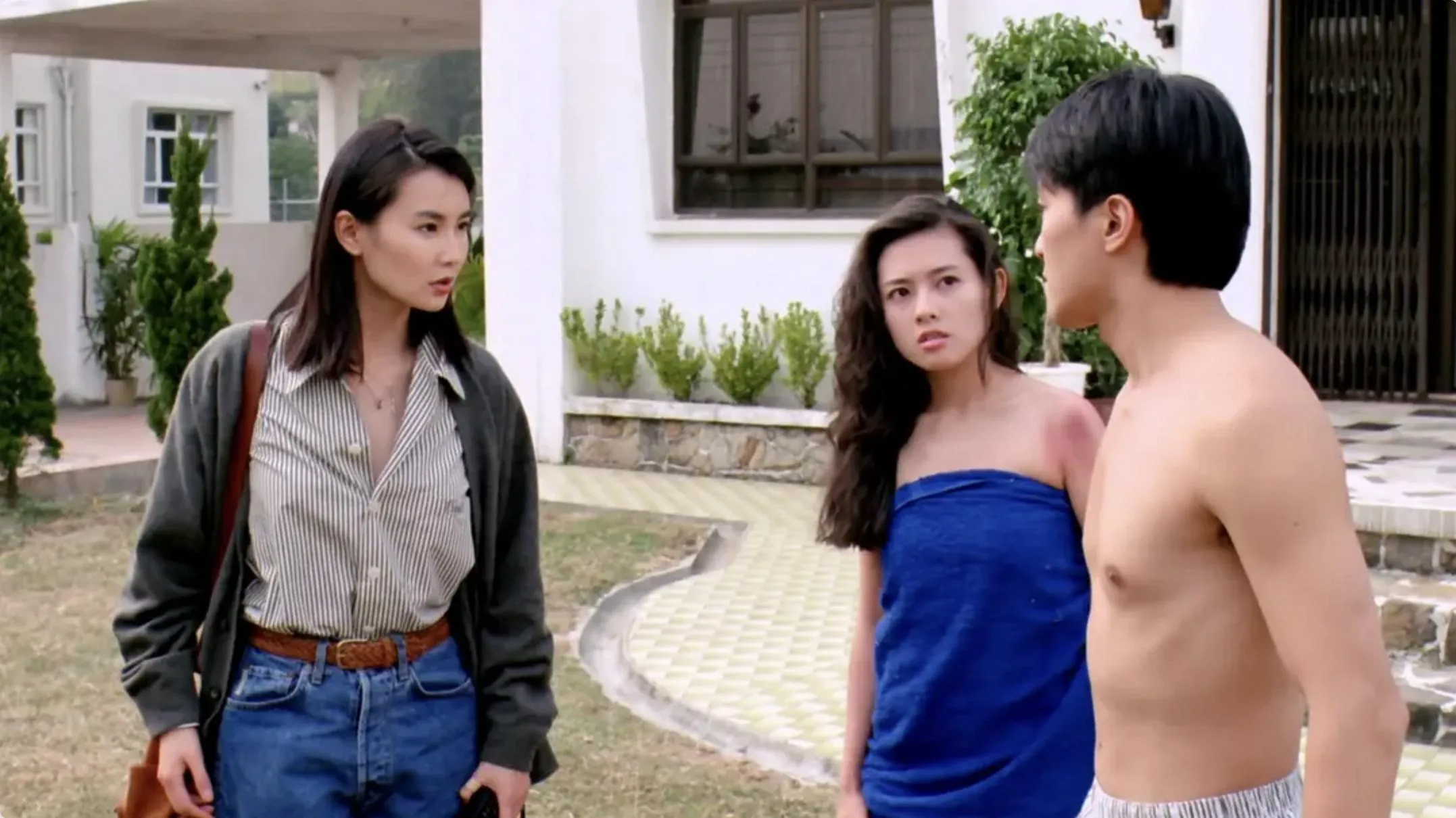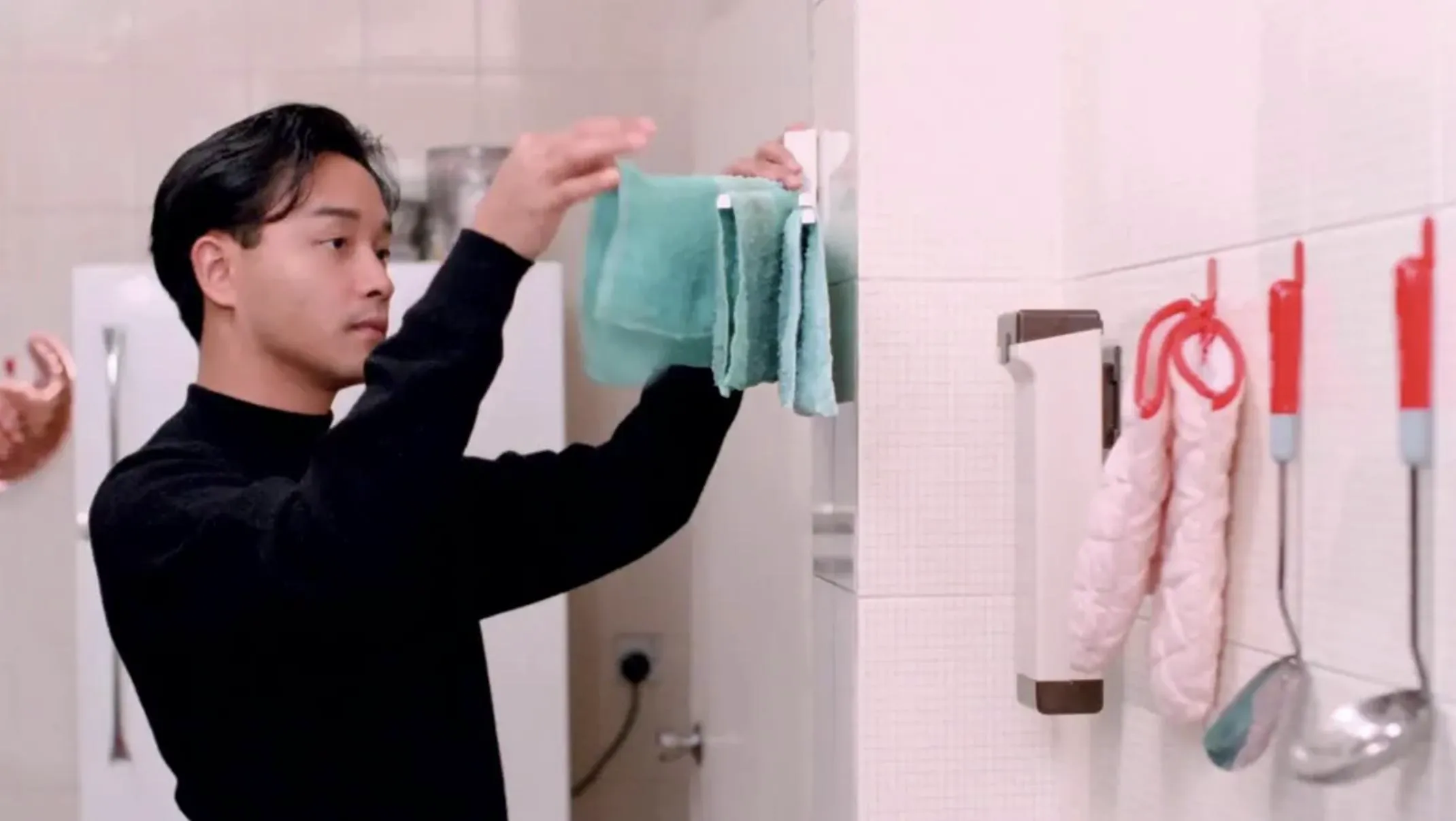A Night of Nostalgia: “All’s Well, Ends Well” Screening and Director Clifton Ko’s Insights
On April 19th, the third installment of the Zhujiang Film Salon took place at the Guangdong 4K Film Creation Center’s mixing studio, featuring a screening of the classic Hong Kong comedy “All’s Well, Ends Well,” directed by the esteemed Clifton Ko.
Originally released in 1992, the film achieved phenomenal success at the Hong Kong box office, securing the second-highest grossing spot that year. Its wildly absurd comedic style perfectly encapsulated the signature “over-the-top” characteristics of Hong Kong cinema.
Even after 33 years, the film’s charm remains undiminished. Laughter filled the screening room as audiences were captivated by the performances of iconic stars like Leslie Cheung, Stephen Chow, and Maggie Cheung. Twenty lucky readers who won tickets through a Southern Plus event also attended, reliving the golden age of Hong Kong cinema alongside director Clifton Ko.
Following the screening, Director Ko shared behind-the-scenes stories from the making of “All’s Well, Ends Well.” The prolific director, with nearly a hundred films under his belt, generously discussed the principles behind creating nonsensical comedy and frankly analyzed the reasons why classic Hong Kong comedies are now difficult to replicate. Ko also expressed his strong support for the “Guangdong-Hong Kong-Macao Greater Bay Area Film” concept, viewing it as a promising avenue for Hong Kong cinema to break free from creative constraints.
Since its inception in December 2024 with the screening of “The House of 72 Tenants,” a collaboration between Zhujiang Film Studio and Hong Kong’s Honto Film Company, the Zhujiang Film Salon has gained recognition for its focus on creative exploration and preservation of classic films, establishing itself as a premier destination for film enthusiasts and industry professionals in Guangdong to share and appreciate exceptional movies.
The Method Behind the Madness: Deconstructing “Nonsense” Comedy
“The idea behind ‘All’s Well, Ends Well’ was actually quite simple – to tell the love stories of three brothers in a family. However, I didn’t want to approach it in a conventional way,” Ko revealed. Inspired by a Western film, he decided to push the boundaries of humor to the extreme.
Clifton Ko.
At the time, such comedic styles were rare in Hong Kong cinema. Producer Raymond Wong, who also starred in the film, was particularly concerned that audiences wouldn’t accept such a frenetic approach. However, Ko had his own interpretation of “nonsense”: “Behind the so-called ‘nonsense,’ there’s actually a very logical psychological framework.”
He cited the example of Stephen Chow’s character’s “leg splitting” scene. “From a physics perspective, it’s obviously illogical. But before that scene, we spent almost five minutes building up the situation where Chow’s character is juggling Maggie Cheung and Teresa Mo, trying to keep them from finding out about each other. The audience has already been drawn into Chow’s character’s perspective, feeling his anxiety and worry. Once that psychological foundation is established, they’ll accept any level of absurdity.”

He used another almost “sci-fi” scene as an example: Chow, holding Teresa Mo, falls from the second floor. To prevent Maggie Cheung from seeing Mo, Chow throws Mo back to the second floor just before landing, only for her to roll down the stairs and end up in front of Chow and Cheung anyway.
In fact, “All’s Well, Ends Well” is full of scenes that defy the laws of physics, such as Chow being hit in the head by a quail egg or Cheung and Chow kissing in a “Paris Tower” position with one of them flying in the air. But audiences didn’t mind; they laughed heartily.
Ko explained, “Why do you laugh so loudly while also thinking it’s nonsense? Because you’re invested, you’ve entered the character’s psychological logic. Otherwise, you’ll just shout ‘nonsense!’ It’s a completely different feeling.”
A Galaxy of Stars: “Everyone Was Willing to Go Crazy With Me”
The three brothers in “All’s Well, Ends Well” were played by Raymond Wong, Leslie Cheung, and Stephen Chow, with their respective partners played by Sandra Ng, Teresa Mo, and Maggie Cheung – a true constellation of stars.
Ko admitted that the film’s success was largely due to the outstanding performances of these actors. “Looking back, everyone was at the peak of their careers, with strong box office appeal and their acting skills at their best. What’s rare is that they were all willing to put aside their superstar status and fully immerse themselves in their roles. For example, Maggie Cheung had just won a Golden Horse Award, but she was willing to ‘go crazy’ with me.”
Ko revealed that the most serious actor on set was producer and eldest brother Raymond Wong. But whenever he questioned whether something was “too crazy,” Leslie Cheung would successfully reassure him.
“Leslie would order takeout or milk tea, using delaying tactics to distract Raymond,” Ko recalled. In a cast full of “overly popular” stars, Leslie Cheung truly served as the “stabilizing force.”
“There was a karaoke scene that we had to shoot from midnight to 8 a.m., but we didn’t actually start filming until 3 a.m. Maggie Cheung had work the next day and needed to leave by 6 a.m., so time was very tight. But Stephen Chow was very excited that day and having a lot of fun, causing constant NGs. Eventually, Maggie Cheung got angry. It was ‘Gor Gor’ (Leslie Cheung) who shouted and calmed everyone down, helping me finish the scene smoothly. I’m truly grateful to him.”
Despite being the most “intimidating” superstar on set, Leslie Cheung was a kind person in private. Ko recalled, “Every time we had lunch, he would sit with the crew and eat boxed lunches, chatting with them.”
Leslie Cheung’s Performance: “Like Sprinkling Perfume”
Many of Leslie Cheung’s fans attended the screening. At their request, Ko shared more anecdotes about him.
He said that Leslie often surprised him during filming. For example, in the opening scene, which aimed to establish the personality of Leslie’s character, the second brother, the script called for Leslie to straighten the towel hanging in the kitchen before leaving. After filming the scene, Ko was about to move on when Leslie suddenly suggested, “Director, do you have time? If so, I’ll film another take for you to choose from later.”

In the second take, after straightening the towel, Leslie happily clapped his hands. This inspired touch brought his character’s personality to life. Ko exclaimed, “Good actors always surprise you. Their performances are like sprinkling perfume on set for the audience, and as a director, I can also enjoy some of the lingering fragrance.”
“I’ve worked with Leslie the most, sometimes as a director, sometimes as a screenwriter. He has a characteristic of being very immersed in his roles. Many people can be lovey-dovey one second and ignore each other the next. But Leslie was different; he would be immersed in a character for months, both on and off screen.” Ko revealed that before filming “All’s Well, Ends Well,” he met with Leslie and found him very melancholic. He learned that Leslie had just finished filming “Farewell My Concubine” and was still stuck in the character’s mindset.
Ko said, “That’s why Leslie never took on two films at the same time. I’ve been a director for 40 years and made 40 films, and he’s the only one who could bring his characters into real life. But is that a good thing or a bad thing?”
Stephen Chow Isn’t “Difficult” At All
In the eyes of many Hong Kong filmmakers, Stephen Chow might be a “difficult” actor. But Ko said, “I didn’t have any conflicts with Stephen Chow during the making of ‘All’s Well, Ends Well.’”
What’s the secret to “handling” Chow? Ko shared with the audience with a smile, “Stephen Chow’s favorite thing is brainstorming (Note: Originally a term used in the theater industry, it later transitioned to the film industry, referring to conceiving scenes and planning plots). Everyone only saw me filming with him for 17 days, but they didn’t know that before that, I spent 25 days ‘brainstorming’ the script with him one-on-one!” He believes that many people think Chow is picky simply because they don’t understand him.
“I never thought he was difficult because I knew he needed that much time to prepare, and I was happy to work with him to refine the script details,” Ko said. “In fact, when we were filming ‘All’s Well, Ends Well,’ sometimes other actors would suggest brainstorming on the spot, but Stephen Chow would refuse, saying, ‘Just follow the script.’”
Interestingly, good actors always compete with each other in subtle ways. For example, when Teresa Mo was filming, she would always ask Ko, “Is this scene we’re filming today funnier than Stephen Chow’s scene yesterday?” Ko would always answer, “Each has its own merits.”
Focus on Greater Bay Area Films, Not Just Hong Kong Films
During the Q&A session, an audience member asked Ko about the current state of Hong Kong comedy films.
In response, Ko first reflected, “Hong Kong filmmakers rarely summarize their experiences; they just keep filming and move on, so there’s a lack of inheritance in comedy films. Also, everyone knows that the golden age of Hong Kong cinema was from the 1970s to the 1990s. Especially from 1990 to 1993, Hong Kong could produce 300 films a year. But when the quantity goes up, the quality is bound to suffer. In addition, star salaries began to rise sharply at that time. For example, ‘All’s Well, Ends Well’ had a budget of HK$19 million, but star salaries accounted for nearly HK$17 million, leaving me as the director with very little money to work with. I know that there was a time in mainland China when star salaries were also too high. I think everyone should think about how much money should be spent on writing the script and how much should be spent on hiring actors for a film.”
Another audience member asked about the impact of short videos on the film industry. Ko expressed an optimistic attitude: “Watching a movie in a theater and sharing your thoughts with friends is a completely different experience from watching short videos alone in your room. I always believe that different platforms attract different audiences. What filmmakers need to do is to constantly improve the quality of films and do every shot and every detail well.” At the same time, he used Hong Kong films as a negative example, reminding filmmakers to pay attention to cultivating young audiences. “When Hong Kong films were at their peak, they didn’t make children’s films, which led to us losing the opportunity to cultivate a new generation of viewers.”
Compared to “Hong Kong films,” Ko now prefers to promote the concept of “Guangdong-Hong Kong-Macao Greater Bay Area films.” “The Greater Bay Area is located in the Lingnan cultural circle, where people speak Cantonese and the differences in lifestyle are very small. Since there’s such a large market, why be obsessed with so-called ‘Hong Kong films’?” He revealed that his kung fu comedy film “Lingnan Kung Fu Boy” is currently in post-production. “Sammo Hung is the lead actor, and like ‘All’s Well, Ends Well,’ it uses a Lingnan family as its subject matter, targeting the entire Greater Bay Area market. I believe it will be released to audiences soon.”